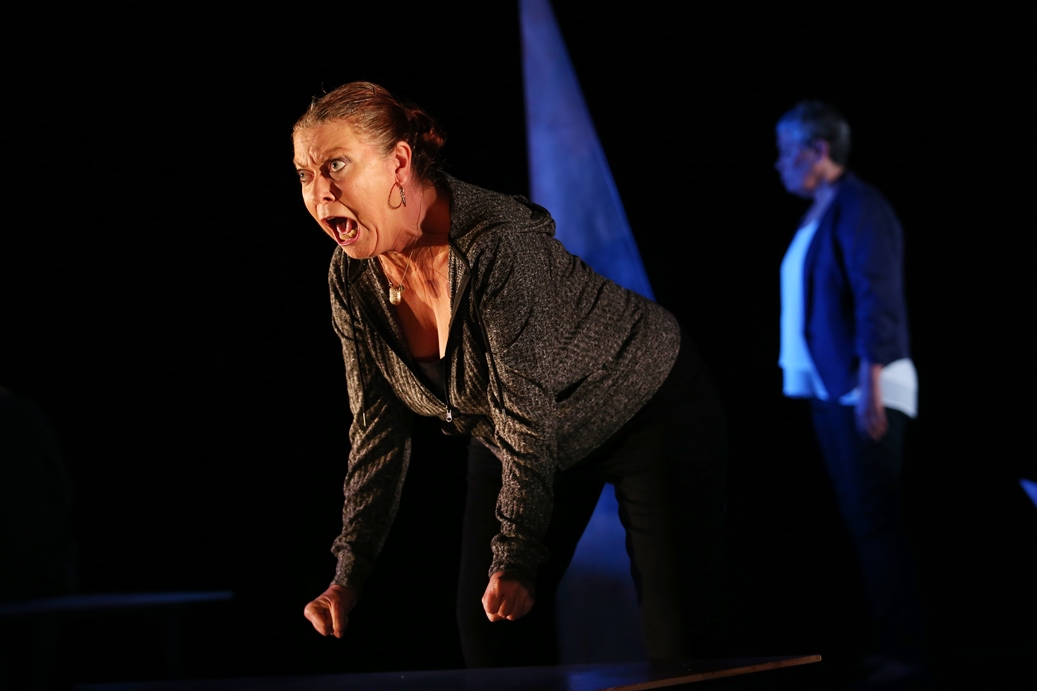
Can theatre raise social consciousness?
- 19 May 2016
Following an evaluation of It all Begins with Love, Dr Wendy Madsen talks about using the realist evaluation approach to evaluate if theatre can raise social consciousness…
In May 2015, Rod Ainsworth outlined a socially-engaged theatre production, It all Begins with Love, a verbatim work related to domestic violence. Here I discuss the Realist Evaluation approach of that production from its October-November tour of Queensland and explore the question, ‘How can theatre be used to raise social consciousness around difficult social issues?’
The main finding from the evaluation emphasised the power of theatre as an avenue of raising social consciousness around difficult social issues. Overwhelmingly, the feedback provided by audience members indicated they were moved emotionally and intellectually by the performance and many indicated the performance had stimulated conversations around domestic violence. It is through such conversations that social consciousness is initiated and expanded. However, there are a number of factors that are likely to influence this potential related to authenticity and relevance of the performance, creation of safe spaces for audiences, timing of the performance (coinciding with emerging social and political attention is ideal) and providing audiences with support to interpret the performance.

In order to evaluate these aspects of socially engaged theatre, consideration needs to be given to dynamics between the script, actors, audience, venue, partners, as well as the broader social and political context. This involves expanding our evaluation focus from traditional outcomes, such as numbers attending performances or immediate post-performance surveys. While these measures are useful, gathering qualitative and quantitative evidence related to all of the dynamics allows those involved in producing theatre to shift their focus to a broader range of factors that may be influencing who attends the performance and what they take away from that performance. In this respect, Realist Evaluation (Pawson & Tilley 1997) has much to offer because it encourages producers and evaluators to consider contexts and mechanisms as ways of explaining a range of outcomes – ongoing or process events as well as final performances – that can inform the production beyond the performance itself.
Realist Evaluation helped refine aspects of the production during the tour of It all Begins with Love. It also helped to reveal the most ‘successful’ performances (in terms of attendance and engagement) were those held in locations where community organisations took an active role in promoting the production and its message: through providing resources and information; marches; opportunities to make pledges. This strongly suggests that producers interested in using theatre to raise social consciousness need to work in close partnership with community organisations in order to optimise the influence of the production.
Working in partnership with local organisations may provide an avenue of addressing the perpetual challenge of capturing long-term impacts through the ongoing relationships these organisations have with their communities. Including these partnerships in a Realist Evaluation process, as part of the social and political context in which productions take place, opens up more extensive avenues to truly evaluate the extent socially engaged theatre is contributing to raising social consciousness.
References
Pawson, R & Tilley, N 1997, Realist evaluation, Sage Publications, London.
 Dr Wendy Madsen is a Senior Lecture and Discipline Leader Health Promotion at the School of Human, Health and Ssocial Sciences, CQ University. Her research interests are focused on history of health, health promotion: community resilience, participatory action research and community learning. Wendy is a member of Australian Health Promotion Association, International Union of Health Promotion, Oral History of Australia Association and Australian History Association.
Dr Wendy Madsen is a Senior Lecture and Discipline Leader Health Promotion at the School of Human, Health and Ssocial Sciences, CQ University. Her research interests are focused on history of health, health promotion: community resilience, participatory action research and community learning. Wendy is a member of Australian Health Promotion Association, International Union of Health Promotion, Oral History of Australia Association and Australian History Association.
Feature image: It All Begins With Love. Photo: Ric Frearson

